It is already known that the crisis in Ukraine, a country that was once part of the former Soviet territory, causes great global geopolitical and geostrategic instability.
However, Moscow’s affront to Kiev’s sovereignty is of particular concern to neighboring Central Asian countries, considering that they all fit the “requirements” Putin uses as a justification for invading Ukraine.
Currently, the region covers the following countries: Tajikistan, Turkmenistan, Uzbekistan, Kyrgyzstan and Kazakhstan. This region is also known as Turkistan (except Tajikistan) which means “land of the Turks” or Turkmens.
Therefore, in the midst of the region’s crisis and Putin’s imperialist speeches, Kazakhstan has stood out by showing a certain insecurity towards Russia and by turning increasingly towards the West as it feels its sovereignty threatened by Moscow.

How do other former Soviet republics see themselves threatened by the new Russian imperialism?
All Central Asian countries are young states, which were initially part of the Russian empire, and later conquered their present borders from the Soviet Union.
However, the former Soviet sovereignty over these territories has been used as justification by Putin for occupying territories where there are Russian minorities to be protected, but these self-determining Russian minorities can be found throughout the region, which leaves a window open to many possibilities.
The use of Russian as an official or co-official language still today by some of these nations in the region – a consequence of their historical heritage – it also contributes to the emergence of minority groups, since a large part of the feeling of belonging comes from a people’s mother tongue, strongly influencing their self-determination.
So, in the same way that the Russian president aims to annex the breakaway cities in eastern Ukraine, in the Donbass region, he hinted that he would do the same in separatist regions of northern Kazakhstan shortly after the president Kazakh, Kassym-Jomart Tokayev, “disrespecting” Putin at the St. Petersburg Forum.
During his speech at the Forum, Tokayev stated that he did not recognize the “quasi-state formations” in Donbass, on the grounds that if the right of nations to self-determination is realized worldwide, then instead of 193 states, which are members of the UN, more than 500 or 600 states will emerge on the planet.
According to him, chaos would ensue and, for this reason, Kazakhstan does not recognize Taiwan, Kosovo, South Ossetia or Abkhazia – noting that the latter two are occupied by Russian troops in Georgian territory -, which left Putin clearly annoyed at the meeting, prompting him to take offensive political attitudes against the country the next day.
In parallel, the Russian media has attacked Kazakhstan excessively, including threats. Lawmaker Konstantin Zatulin told Radio Moskva that Tokayev “challenged” Putin and said such a disagreement could result in an invasion to protect the Russian minority and annex the territory.
Zatulin further said that “there are many cities with a predominantly Russian population in the country and that these people have little to do with what has been called Kazakhstan”.
Finally, according to the newspaper AlJazeera, Zatulin says that “I would like that Astana – the former name of the Kazakh capital, Nur-Sultan – does not forget that with friends and partners, we do not raise territorial issues and do not argue. As for the rest — as with Ukraine, for example — anything is possible.”
7 Examples of how relations between Kazakhstan and Russia are strained
Historically, relations between Russia and Kazakhstan are extremely important as they are political and military allies. The intense relationship between both countries can be noticed by observing the Baikonur Cosmodrome.
This area is located in southern Kazakhstan and is leased to Russia for 115 million dollars annually. This is the world’s first spaceport for orbital and human launches and the largest operational space launch facility (in the area). All Russian manned spaceflights are launched from the site.
In early 2022 you can see the deployment of Russian troops to quell uprisings in Kazakhstan, the troops were sent at the request of Tokayev, under the authority of the Collective Security Treaty Organization (OTSC) – a group of countries that comprises Russia , Kazakhstan, Belarus, Tajikistan, Kyrgyzstan and Armenia, which was created after the collapse of the Soviet Union.
The objective was to appease protesters who were protesting due to the significant increase in the price of liquefied petroleum gas (LPG). The CTO says the troops are a peacekeeping force that will protect state and military facilities such as gas pipelines, Russian military bases and the Russian space station at Baikonur.
However, due to the ongoing war in Ukraine, relations between Putin and Tokayev have been deteriorating, especially after the recent events at the St. Petersburg Forum mentioned above.
Therefore, through the analysis of some of the most recent Kazakh decisions in the area of foreign policy, the 7 most relevant events that demonstrate this departure are:
- Putin’s speech about the former Soviet Union as “Historical Russia” has aroused concern in the former Soviet states, therefore, there is a refusal to recognize separatist territories in Ukraine, supported by Moscow, as well as other separatist territories.
- Kazakhstan’s President Tokayev has offered the European Union the possibility of buying oil directly from the country, instead of buying it from Russia.
- Kazakhstan has a current project to use the Trans-Caspian route to build a gas pipeline around Russia and thus guarantee more autonomy for Russia – as the Kazakh gas pipeline currently passes through Russian territory and Putin has frequently interrupted this route, using oil and gas. gas as a “mass interruption weapon”.
- President Tokayev assured EU leaders that the bloc could depend on him to help them overcome the Russian-caused energy crisis.
- Kazakhstan has sought to strengthen its national sovereignty while remaining politically and economically open to countries “unfriendly” to Russia.
- The Kazakhstan Embassy in London was lit up in the colors of the Ukrainian flag, amid the ongoing war. This is an extremely significant fact, which makes Tokayev’s message to Putin very clear, that Kazakh support is with Ukraine.
- Kazakhstan withdrew from the 1995 Commonwealth and Independent States (CIS) Agreement on the Interstate Monetary Committee, a system created to increase credit and currency exchange.
These are just a few, among other attitudes of Kazakh foreign policy, which demonstrates its new stance in the International System.
China’s role of “protection” of Central Asia against Russia
Since Russia’s invasion of Ukraine in early 2011, Central Asian leaders have been trying to lessen their dependence on Russia and deal with the economic fallout from the sanctions Putin’s war has brought on the region.
This new stance by Central Asia has created possibilities for new opportunities, as the presidents of these countries reassess their balance points among various world powers.
Indeed, for many years, China has been a major investor in countries in the region, providing them with connections to projects implemented in Eurasia, and the pandemic has made China-Central Asia cooperation even stronger, strengthening trust between countries.
However, China continued to follow the course it set decades ago, pursuing its security interests in the region and ensuring access to valuable energy and minerals exports.
It should be noted that in addition to being the country that invests the most in the region – US$ 40 billion in 2021 and Kazakhstan alone benefited with US$ 21.4 billion – the country is the main importer of products from Central Asia.
Therefore, China’s presence in the Central Asian support network in such an incisive way ends up “protecting” the countries in the region from Russian authoritarianism with Putin’s threats and sanctions to its neighbors.
The most significant example that can demonstrate this cooperation is the Belt and Road Initiative (BRI) which, according to the European Bank, “is a strategy initiated by the People’s Republic of China that seeks to connect Asia with Africa and Europe through land and sea with the aim of improving regional integration, increasing trade and stimulating economic growth”.
In this way, it will be possible to divert (geographically and politically) from Russia, as for the purpose of energy supply, for example, since the main priorities of the route are: the coordination of policies; infrastructure connectivity; unimpeded trade; financial integration and connecting people.
Finally, according to Erica Marat of the National Defense University in Washington, both China and Turkey see an opportunity to expand their presence in the region.
The future trend of the weakening of the relationship between Kazakhstan and Russia
Although the Russian invasion of Ukraine is primarily a geopolitical phenomenon, its consequences will profoundly affect the global geoeconomy.
By creating a “vacuum” in the relations between Russia and the countries of Central Asia – due to his imperialist speech and actions that refer to the late Soviet Union – Putin ends up leaving the way free for the greatest Asian power to act, China.
Benefiting from this, China will further strengthen its relations with Central Asian countries, especially Kazakhstan, giving the country an alternative to Russia.
For China, Russia’s vast landmass was the most reliable land route to the bountiful EU market, but Putin’s war has shattered the Chinese dream of building greater land connectivity, so far.
So China-EU connectivity will apparently depend on old sea lanes, which have proven more resilient than road or rail networks, underscoring that 80% of global trade is still maritime.
With the Kazakh offer to the EU to supply its energy needs – and with the help of China – it is likely that the “Central Asia – West Asia” corridor will become very necessary, as it passes through the countries of Central Asia, through the region of the Caspian, Iran and Turkey, bypassing Russia to reach Europe.
Therefore, it can be said that currently, while the world is recovering from the pandemic shock and at the same time dealing with the war in Ukraine, China and Central Asian countries are advancing to a new level of relations.
As for Russia, it is increasingly losing strength in its “sphere of influence” because of its aggressive and expansionist policies towards its neighbors. This demonstrates yet another major Russian strategic mistake that is increasingly isolated since it invaded Ukraine. The shot is backfiring.

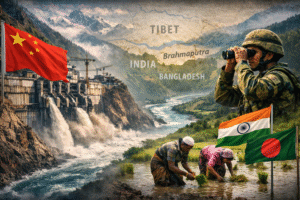
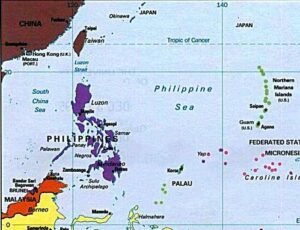
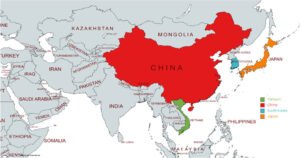
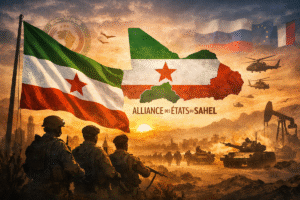
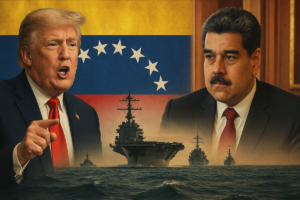
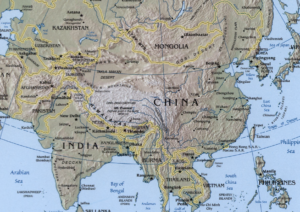
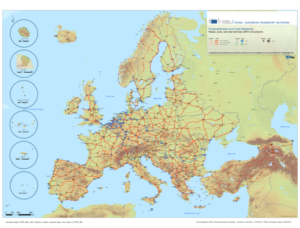
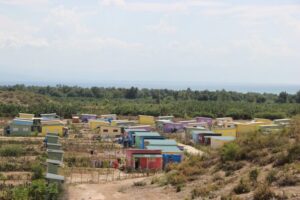

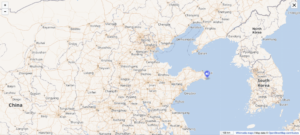


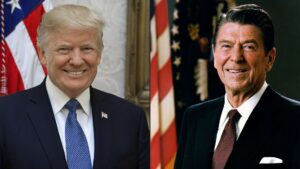
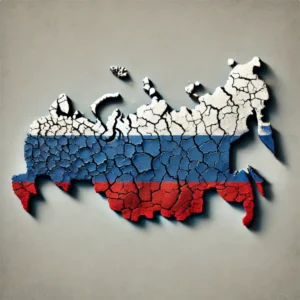
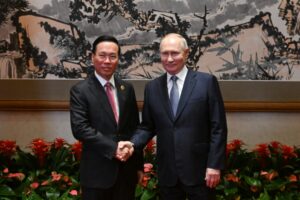
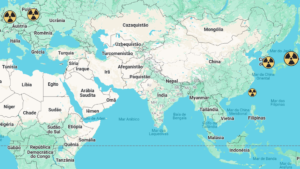
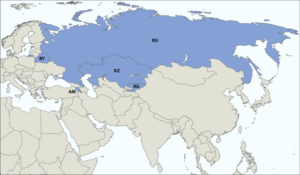
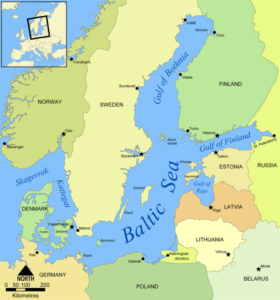
[…] and investments through the Belt and Road Initiative, creating pseudo-vassal states, much the way China has been doing to other Central Asian countries for […]
[…] Regionalismo da Sibéria: Parte desta região costumava pertencer à China sob a Dinastia Qing, mas foi anexada à força pelo Império Russo sob a Anexação de Amur. Rica em recursos naturais, a China pode fomentar alguns movimentos de independência na região, dependendo de desenvolvimentos futuros. Eles provavelmente não fariam isso para anexar a área, o que desencadearia uma resposta nuclear de Moscou, mas para apoiar sua total independência. Este novo país independente poderia então se tornar um destino para dinheiro e investimentos chineses por meio da Iniciativa da Nova Rota da Seda, criando estados pseudo-vassalos, da mesma forma que a China vem fazendo com outros países da Ásia Central há anos. […]
[…] Kazakhstan has been pulling away from Moscow since the start of Russia’s war against Ukraine. However, since the Russian invasion of Donbass 8 years ago, Astana has feared the possibility of scenarios similar to those of Ukraine happening in its northern territories on the border with Russia, which is inhabited by ethnic Russians. […]
[…] distancing of some Central Asian countries from Moscow, especially due to the war in Ukraine, has created opportunities for other […]
[…] Russian interests in territories historically aligned with Moscow in Eurasia, such as Armenia, Kazakhstan, Ukraine and Uzbekistan. This contest is not just a battle for influence, but a struggle for […]
[…] and human launches and the largest operational space launch facility in the region. Baikonur is Kazakhstan territory, but all Russian manned space flights launch from […]